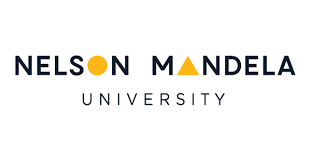Nelson Mandela University’s expert contributes to sexual education to address gender-based violence and early pregnancies
Science lecturer in Mandela University’s Education Faculty Dr Asanda Simayi, believes in science education linked to cultural practices and indigenous knowledge to make a difference to societal challenges.
The topic on human reproduction runs across the curriculum and is prescribed from Grade 7 Natural Science up to Grade 12 Life Sciences and also covered in Life Orientation, yet it is not taught effectively, Dr Simayi says.
The effective teaching of sexual concepts and processes, such as the menstrual cycle, fertilisation and circumcision, is avoided by teachers in many schools, especially in rural, township and farm schools.
This is due to cultural taboos associated with talking about sexual concepts, learners treating the section as sex talk and embarrassing teachers with explicit sex questions, which are not part of the main content area.
With the high rate of gender-based violence in the form of sexual assaults on children and women and early pregnancies in South Africa, teaching these avoided sexual concepts from an early stage would emancipate girls residing in marginalised communities (child-headed homes, stepparents, extended families, deeply religious and deeply traditional homes).
They could be educated about changes happening in their bodies, particularly processes, such as menstruation and fertilisation, before they reach adolescence.
Current topics on menstruation run by media are ‘menstrual pads campaigns’, which address personal hygiene, without actually addressing the science of it and linking it with cultural practices.
“The difference with what I am doing with my university science students is to use Xhosa Indigenous Knowledge sourced from my PhD study in bridging the gap between acceptable language on sexual concepts and cultural practices used in Xhosa communities with language in school science curricula for both teachers and learners, says Dr Simayi.
“We use English and isiXhosa to do the illustrations and draw reference on how these topics were taught in the olden days and link each traditional term to the exact science process and term”, she says.
For example, menstruation is regarded as engceni (on the grass) or on time (exesheni) in isiXhosa and each concept is linked to the endometrium (uterine lining) that is stripped during menstruation according to science and the importance of menstruation as a fundamental process for childbearing in any nation, no dirtiness and no taboo.
In addition, Dr Simayi initiated an ICT (link through Microsoft Teams)-Science teaching project at Swartkops Primary in Gqeberha in 2022 with Grade 7s. She taught human reproduction, fertilisation and menstrual cycle by using indigenised strategies, including chemicals and materials available at home that can be used for science experiments as many schools struggle with materials and equipment.
Dr Simayi visited the school twice a quarter while her University science students (including first years), were linked in real-time with the lessons through Microsoft Teams.
Her students also had multiple School-Based Learning opportunities as they took part by engaging with the learners through their laptops connected to a speaker during the Covid-19 period.
This project is planned to continue for the next two years. Dr Simayi received funds from the Teaching Discretionary Fund from the DHET (Department of Higher Education and Training) and UCDG (University Capacity Development Grant), through the Teaching and Learning Unit in August 2022 to run the project.
“This ICT-Science teaching project is set to expand to include stakeholders, such as churches in township areas, to reach out to many young children and parents. I intend to start the extended project in March 2023 using my own funds, while applying for additional engagement grants.
“I am giving hope to a rural girl and struggling teacher that we can change our situations,” says Ayanda, who herself was a rural girl from Celetyuma village in Peddie.
Dr Simayi was also awarded the University’s Emerging Excellence Teacher for 2022 for her Indigenised Teaching strategies to remove the fear of science in diverse students. For example, to test for oxygen, she introduces a lesson with a traditional practise where an aunt brings a burning log to a container with umqomboti to test for the state of readiness of the fermentation process.
Cultural Science indicates that if the log burns brighter, then fermentation is finished. Similarly, Western Science tests for oxygen by introducing a burning splint through a test tube. If the flame burns brighter, the gas is oxygen. Grounding abstract science on cultural knowledge scaffolds learning, accommodates diversity and improves achievement.

